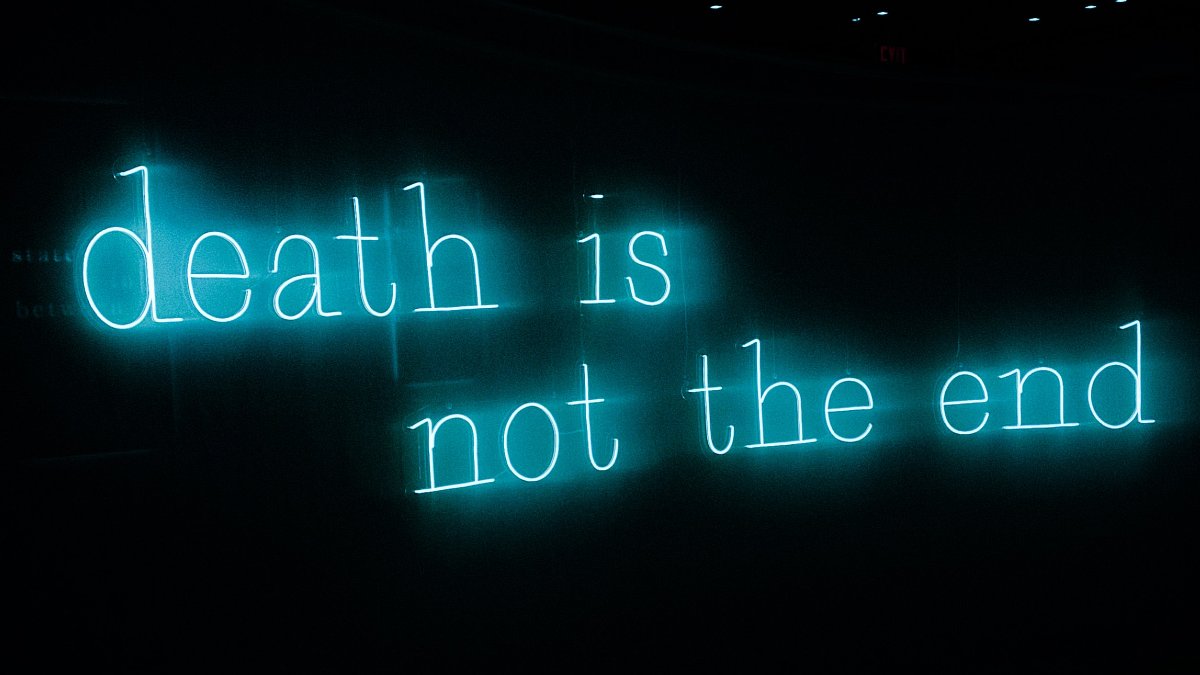
How Your Beliefs About Afterlife Influence Your Daily Life
Where you think you might wind up after death might dictate your life path.

By Jourdan Travers, LCSW | October 10, 2023
Our beliefs about what happens to us after we die have shaped religions, cultures and personal philosophies. A 2021 survey found that, in the United States, a staggering 83% of adults believe in some form of an afterlife, including individuals who do not identify with any particular religion.
Research also shows that a belief in the afterlife is tied to psychological well-being. A significant reason for this could be that these beliefs alleviate anxiety by reducing uncertainty regarding the future of our existence, as well as reducing our fear of death.
However, there are other effects of afterlife beliefs that are not as apparent to us, yet still impact our lives. Here are three surprising ways in which afterlife beliefs can shape one's mindset and behavior.
1. Afterlife Beliefs Impact Environmental Sustainability
A 2023 study found that our beliefs about the afterlife influence our commitment to environmental sustainability.
The study revealed that individuals in the U.S. adhering to Eastern religious traditions, which often emphasize interconnectedness with the earth, display greater support for sustainability efforts. This was associated with their belief that they would return to the earth, making them more likely to care for it.
Conversely, U.S. Christians reported the lowest level of sustainability practices. The study suggests that those who believe in leaving the earth after death are less inclined to engage in sustainable practices, as they might perceive the environment as being less relevant to their afterlife journey.
2. Afterlife Beliefs Impact National Identity
A 2021 study found that afterlife beliefs are linked to national identity in unexpected ways. When confronted with reminders of their own mortality, participants in the study increased their belief in how long their nation and culture would last, by thousands of years. This suggests that identifying strongly with one's nation increases the longevity with which one can symbolically live on. Following this, participants experienced less anxiety about death.
In other words, the awareness of one's mortality motivated study participants to perceive their nation's legacy as long-lasting—and this was especially true for individuals who did not believe in an afterlife. We might see real-life reflections of this sentiment during periods of national grief, such as the recent death of Queen Elizabeth II in the United Kingdom, which prompted both existential fear as well as patriotic devotion.
The study also found that, in contrast to those who sought symbolic immortality through their nation's legacy, those who believed in an afterlife did not seek 'national immortality' on earth, most likely due to the belief that they would already live on in their afterlife.
3. Afterlife Beliefs Impact Levels Of Prejudice
In 2023, a study explored the connection between afterlife beliefs and prejudice, revealing that both religious and secular afterlife beliefs can lead to bias against groups with different values. Many afterlife beliefs are inherently exclusionary—for instance, beliefs that divide people into "believers" and "non-believers."
In real life, such beliefs can fuel premature judgments, discrimination and exclusion of those who don't share similar beliefs. For instance, research shows that religious fundamentalists rate atheists and liberals negatively, while those low on religious fundamentalism rate Christians and conservatives negatively. And, according to a 2020 study, agnostic and atheist individuals also report prejudice toward Christians.
The reason for such contention could be that most individuals tend to adopt worldviews and align with social groups that reinforce their values and their sense of self-importance in the face of existential dread, causing them to alienate any group they perceive as "value-threatening."
On the other hand, the researchers of the 2023 study also discovered that certain afterlife beliefs were linked to increased peace of mind and reduced death anxiety, which, in turn, was associated with decreased prejudice. This might be because afterlife beliefs can mitigate the fear of mortality for some, which lessens the need to reject opposing worldviews that an individual may otherwise strongly hold on to as a defense against future uncertainty.
Conclusion
Our beliefs about life after death can impact our mental well-being, our commitment to environmental sustainability, our national identities and even our treatment of others. Our views on the afterlife are not only confined to the spiritual realm, but also play an integral role in shaping the way we navigate the complexities of existence on Earth. Afterlife beliefs may offer solace, provoke reflection, or challenge conventional thinking, shaping our perspectives and life experiences in ways that we are only beginning to understand.
